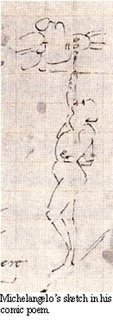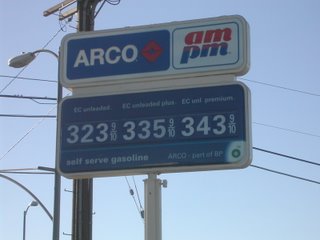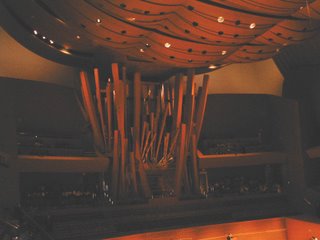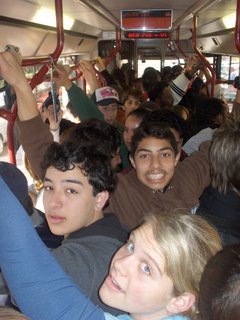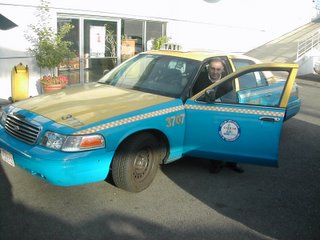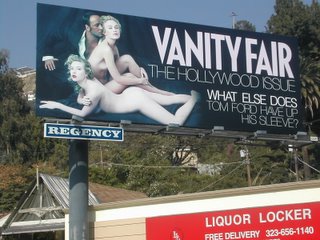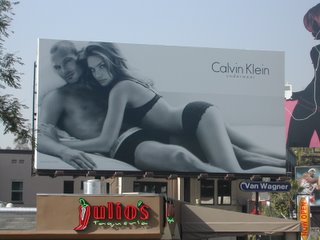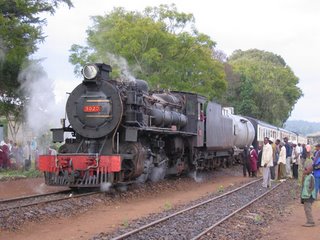 Ever since I had that first cup of chai in the guards van on the East African Railways and Harbors train going down to Mombasa, I have tried to combine spices to concoct a flavor that emulated it. I often visited the Jani family, when as a student I befriended Janarden and Rajendra (Babu and Raji) and had tea with them. Their chai was very good but never quite as I remembered. I have found that black tea with a good lacing of ginger, and a little cinnamon with three or four cloves, some nutmeg, cardamon and fennel with cumin and pepper are what it takes.
Ever since I had that first cup of chai in the guards van on the East African Railways and Harbors train going down to Mombasa, I have tried to combine spices to concoct a flavor that emulated it. I often visited the Jani family, when as a student I befriended Janarden and Rajendra (Babu and Raji) and had tea with them. Their chai was very good but never quite as I remembered. I have found that black tea with a good lacing of ginger, and a little cinnamon with three or four cloves, some nutmeg, cardamon and fennel with cumin and pepper are what it takes.Chai
In London and L.A.
And now I make for myself
I like it most that way.
“Kitu gani wewe na funya,1
Bwana kidogo?” he said to me,
When I slide back the guards van door
With curiosity.
“Na taka ungalia tu!”2
Was my hasty reply,
And jiggling his turbaned head
He asked “Na taka chai?”3
“Indio.” was my answer4
The this is what I saw,
He primed and lit the primus stove
Right on the guards van floor.
When the milk and water
Boiled in his tin,
He took a hand of fragrant tea
And deftly threw it in.
The bubbles died then rose again
Then this is what he did,
He whisked it off and stirred the pot
And poured it through a sieve.
We each had an enamel cup
He filled them from his tin,
Then taking up a little spoon,
He put the sugar in.
Then handing me a cup of chai
He said don’t gulp the lot,
“Poli poli, moto sana.”5
Be careful -very hot!.
The train went cuffing onwards
Down Mombasa way
And still I try to find the taste
Of chai like that today
I have had chai in Oxford
In London and L.A.
And now I make for myself
As good as in Bombay!
1. What are you doing Little Sir?
2. I want to have a look that's all!
3. Do you want some tea?
4. Yes was my answer
5. Slowly Slowly, very hot.
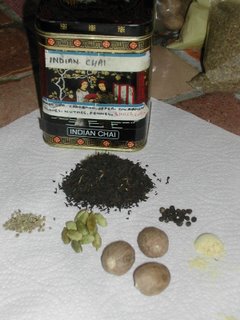 Some of the spices fennel, tea, cardamon, nutmeg, pepper and ginger. also cloves are added
Some of the spices fennel, tea, cardamon, nutmeg, pepper and ginger. also cloves are added

